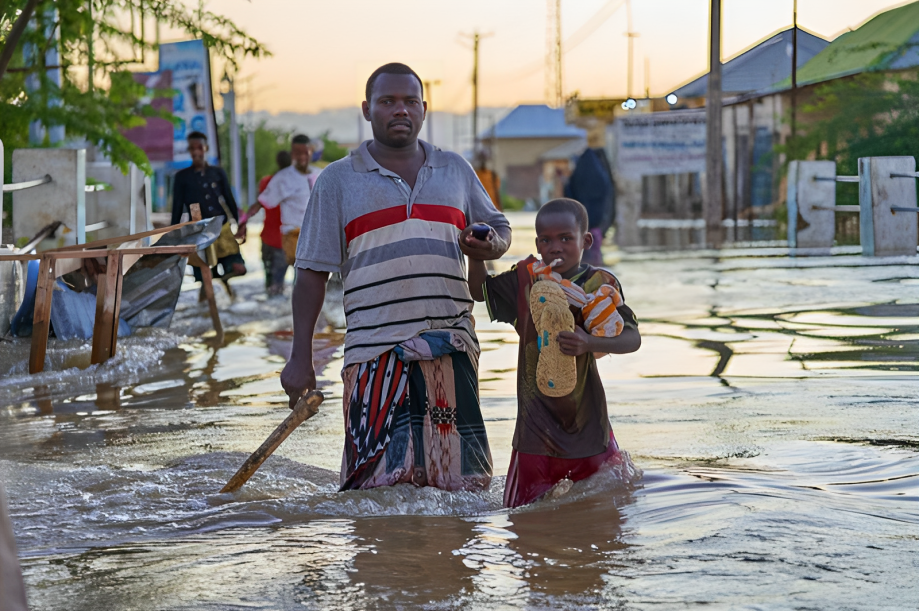Last updated on November 27th, 2023 at 07:35 pm
Deadly floods have swept Somalia, a country in the Horn of Africa, after two consecutive years of flood. Heavy rain and floods since October have driven hundreds of thousands of families from the homes, killing at least 96 people.
This has been attributed to the El Nino and Indian Ocean Dipole weather phenomena – climate patterns that impact ocean surface temperatures and cause above-average rainfall. The United Nations has described the flooding as the worst in decades, and displaced about 700,000 people.
The federal government in Somalia declared a state of emergency in October after extreme weather destroyed homes, roads and bridges.
Somalia Flood of the Century
The Somali Water and Land Information Management project warned of a flood event of a magnitude statistically likely once in 100 years. It said about 1.6 million people in Somalia could be affected by flooding events in the rainy season lasting until December.
Hassan Issee, who manages emergency operations at the Somalia Disaster Management Agency, said scores of people have been killed by flooding across the country. “The situation is grave, and we are doing our best to provide relief to the affected people.”
Numerous families have been forced to flee after three days of torrential rain. Data shows that 687,235 people in Gedo, Hiraan, Bay and Bakool regions were forced to flee their houses as floodwaters swept away bridges and destroyed at least 6,000 houses. More rain has been forecasted and this is likely to bring more destruction.
Farhan Mohamed Jimale, Somali government spokesperson, said they have initiated lifesaving programmes, deployed dozens of boats where bridges are destroyed, and partnerships with aid organizations to help the masses.
Keep Reading
Climate Crisis in Somalia
Somalia contributes only 0.03 percent of total global emissions, has been disproportionately affected by climate change. The Climate Prediction and Applications Center (ICPAC) warned that effects of climate change are becoming more severe, frequent and widespread with far-reaching consequences for the region.
Laura Turner, WFP Somalia Deputy Country Director, said the most vulnerable people in Somalia have been hit once again by climate change. “With these floods following right after the drought, it feels like a relentless bombardment of climate shocks for struggling families. Humanitarian aid brought people back from the brink of starvation in 2022, but Somalia is still facing the highest levels of hunger it has suffered in over a decade.”
Turner said there is a need to provide communities with the tools and knowledge to weather these extremes to break the crisis-driven cycle of hunger that has afflicted Somalia for too long.

